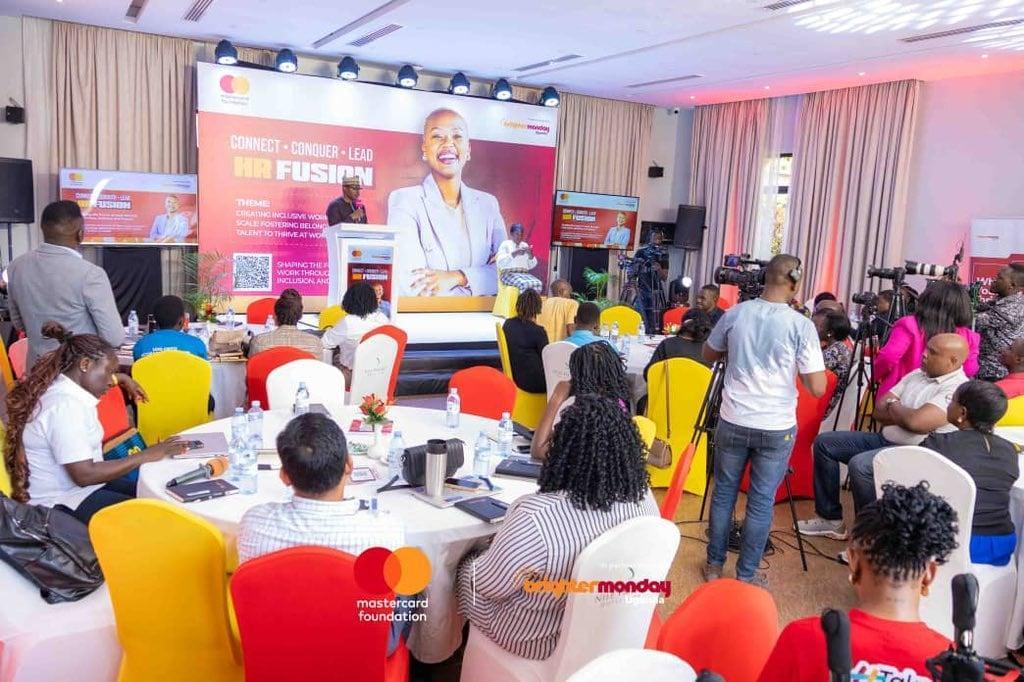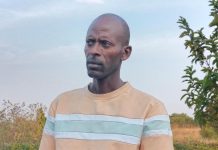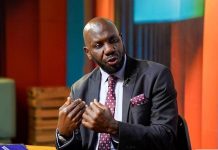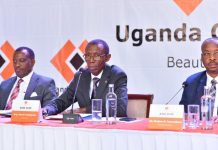Africa-Press – Uganda. Human Resource professionals across the country have been called upon to cultivate safe and inclusive workplaces that accommodate all people, regardless of gender, ability, or background.
This appeal was made during the HR Fusion Engagement held on Friday at Nile Village in Jinja, an event organized by BrighterMonday Uganda in partnership with the Mastercard Foundation.
The event, themed “Creating Inclusive Workplaces at Scale: Fostering Belonging for Every Talent to Thrive at Work,” brought together HR officers from various organizations for transformative sessions aimed at equipping them with practical strategies to build inclusive workspaces.
Pamela Kabahesi, the Country Programs Lead at BrighterMonday Uganda, emphasized the need for inclusivity across the board.
“We are having a conversation around inclusiveness what it means to create an inclusive workspace in Uganda today,” Kabahesi said.
“We have people with disabilities, displaced persons, breastfeeding mothers, pregnant women. How do we ensure that the workplace is conducive for all kinds of people?”
She noted the importance of tangible actions, such as having sign language interpreters, creating breastfeeding spaces, and ensuring pregnant women receive appropriate healthcare time-off.
“It’s 2025. We have talent in all the spaces,” she added. “We hope the employers take these conversations back to their workplaces so they can start to cater to these needs.”
Ahmed Alaga, Head of Programs and Impact Partnerships at The African Talent Company BrighterMonday Uganda’s parent organization highlighted the cultural and structural barriers that often hinder inclusivity in recruitment.
“Culture plays a huge role in how we behave and understand things, even simple things like respect,” Alaga explained.
“For example, in some cultures, looking an adult in the eye is considered rude—but in an interview setting, it may be seen as lacking confidence,” he added.
He stressed the need to equip young people especially women and those from rural or displaced backgrounds—with employability skills and critical training.
“There’s a huge gap between what the education system is churning out and what the job market actually requires. We’re listening to employers and then going back to our talent pool to offer training, support, and guidance,” he said.
Alaga urged youth to prioritize experience over monetary gain.
“Work for your name, not for money—your name will make money for you,” he advised.
Xenia Wachira, Country Manager of BrighterMonday Uganda, addressed the misconception that inclusivity is only for large corporations.
“Most Ugandan businesses are informal, small, and focused on survival,” she noted. “There’s a perception that inclusivity is a luxury for structured, well-resourced companies—but that’s not true.”
Wachira advocated for practical and policy-level interventions to ensure inclusivity is accessible to all employers.
“It can be as simple as hiring more women, people with disabilities, or displaced individuals. Knowledge is now widely available online, and inclusivity is easier than ever,” she said.
She added that; “If you have 10 employees, 40% should be women, and 5% could be people with disabilities. These policies can help normalize inclusive hiring.”
Susan Mataka, Head of HR at Kakira Sugar Limited, shared her organization’s positive experience with inclusive practices.
“Companies must be intentional, start by setting clear targets, and monitor their progress,” Mataka stated. “At Kakira, we hire refugees, people with disabilities, and ensure gender balance in our workforce.”
She said that inclusivity has yielded measurable benefits.
“We have seen improved employee engagement, increased creativity, and high retention rates. People feel they belong and serve wholeheartedly,” she said. “Open communication between employers and employees is critical—it gives leaders feedback and makes them better leaders.”
The attendees of the HR Fusion were emphasised to take the lessons learned back to their organizations.
For More News And Analysis About Uganda Follow Africa-Press






